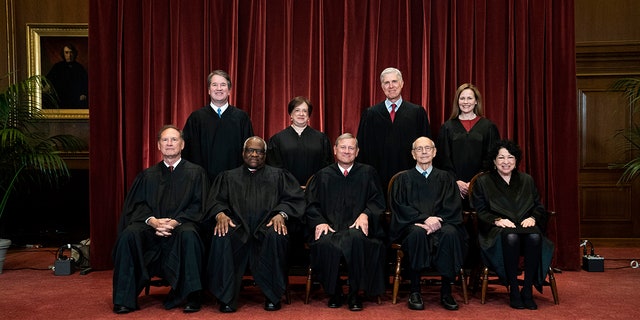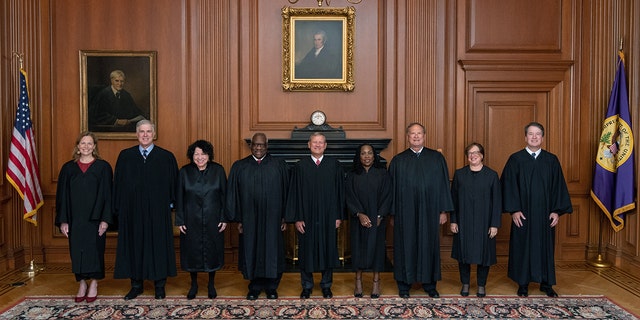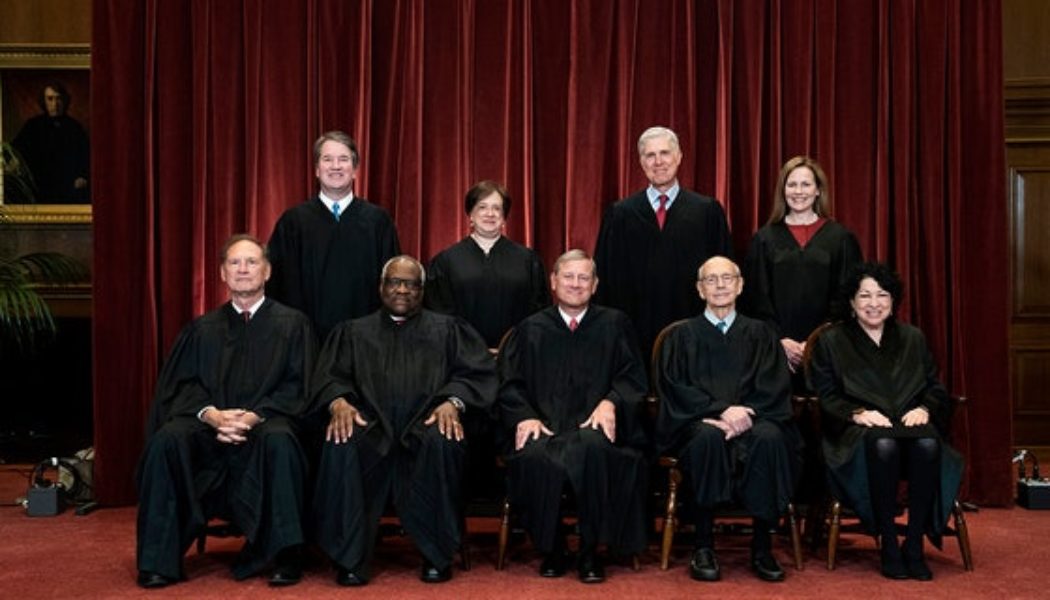Supreme Court justices will be required to be more accountable when filing their financial disclosures in accordance with new legislation.
According to the new guidance, justices will be required to report all personal gifts and free hospitality at commercial accommodations.

Seated from left to right, are Associate Justice Samuel Alito, Associate Justice Clarence Thomas, Chief Justice John Roberts, Associate Justice Stephen Breyer and Associate Justice Sonia Sotomayor, Standing from left to right are Associate Justice Brett Kavanaugh, Associate Justice Elena Kagan, Associate Justice Neil Gorsuch and Associate Justice Amy Coney Barrett. (AP)
The regulations were updated by the Judicial Conference of the United States Committee on Financial Disclosure on Mar. 14.
The updates were made public in a letter from Administrative Office of the United States Courts Director Honorable Roslynn Mauskopf to Sen. Sheldon Whitehouse — Whitehouse is the chair of the Judiciary Committee’s Subcommittee on Federal Courts, Oversight, Agency Action, and Federal Rights.
READ THE LETTER TO WHITEHOUSE – APP USERS, CLICK HERE:
“The following definition of ‘personal hospitality of any individual’ now appears in the Judicial Conference regulations: ‘Hospitality extended for a nonbusiness purpose by an individual, not a corporation or organization, at the personal residence of that individual or his or her family or on property or facilities owned by that individual or his or her family,'” the letter reads.
The letter was a response to one Whitehouse filed on Feb. 21 asking for clarification on the rules concerning justices and personal gifts.
Justices and federal judges must also disclose when these gifts or services have been covered by a third party.
“The Judicial Conference’s updated rules on financial disclosure are a big step toward closing the loopholes that kept the public in the dark about who was paying for justices’ lavish lifestyles,” Whitehouse said of the updated guidelines.

Members of the Supreme Court, from left to right, Associate Justices Amy Coney Barrett, Neil M. Gorsuch, Sonia Sotomayor, and Clarence Thomas, Chief Justice John G. Roberts, Jr., and Associate Justices Ketanji Brown Jackson, Samuel A. Alito, Jr., Elena Kagan, and Brett M. Kavanaugh pose in the Justices Conference Room. (Collection of the Supreme Court of the United States via Getty Images)
CLICK HERE TO GET THE FOX NEWS APP
His statement continued, “These new rules will make it much harder for justices to travel, dine, hunt, or vacation for free at the private resort of a wealthy corporate executive – especially one with business before their court – and avoid disclosing that information to the public. I’m hopeful this rule is a harbinger of more ethics and transparency improvements to come for the Supreme Court.”









